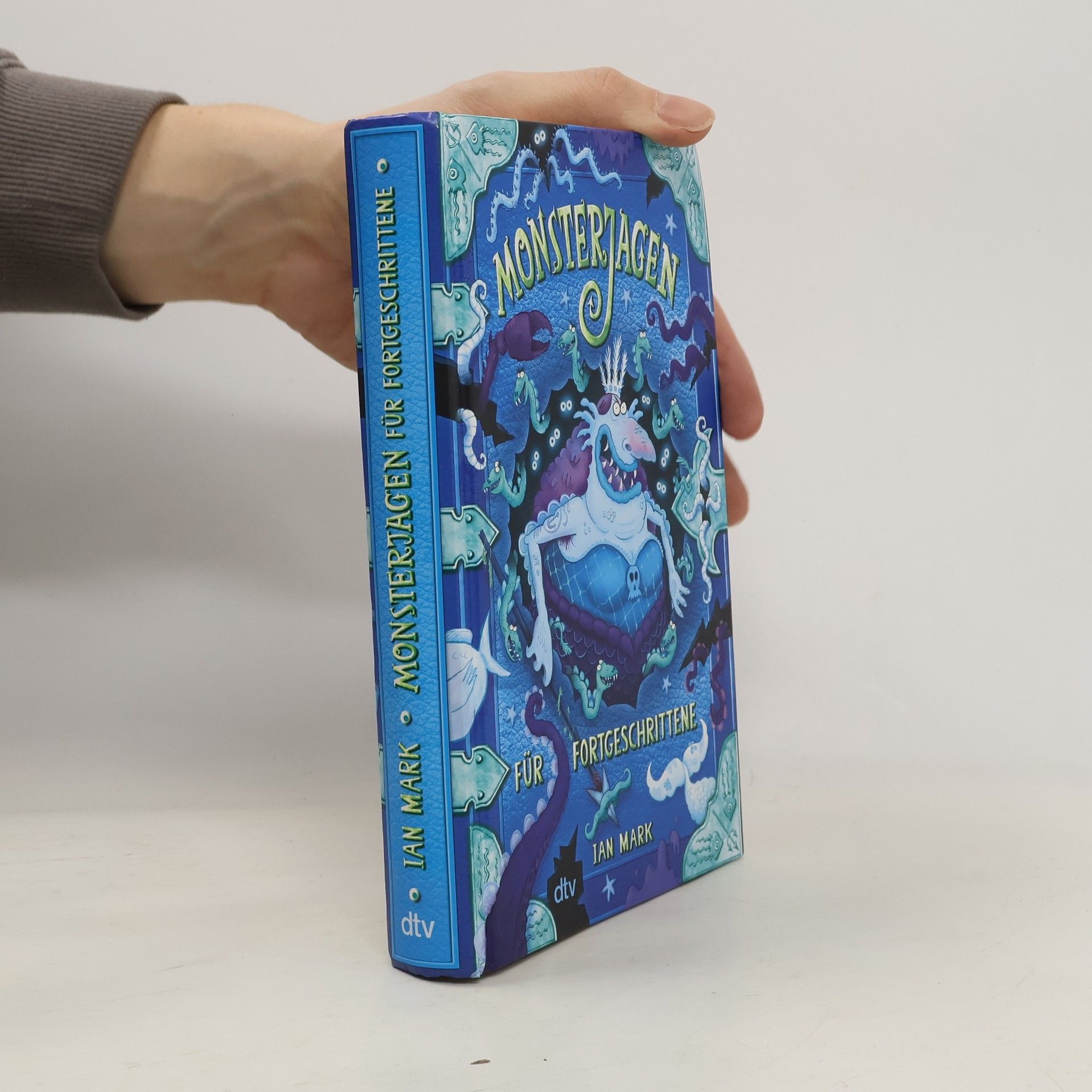“A magnificently hilarious masterpiece!” Jenny Pearson on Monster Hunting for Beginners Our hapless monster hunters are back – and this time they’re tackling dragons! Readers of 7+ and fans of Mega Monster and Shrek will adore this funny fantasy series from NI-based author Ian Mark and Belgian animator Louis Ghibault
Mark Halsey Book order (chronological)





Każdy wielki bohater musi od czegoś zacząć. I mały był gotowy. Tutaj na przykład Jack jest łowcą potworów. Nie wierz? Myślał, że nie uwierzycie, więc dodał swoje zdjęcia do książki. Na początku był zwykłym chłopcem, który mieszka z ojcem, chodzi do szkoły i nawet potrafi dzielić kolumnami. Jednak pewnego dnia po powrocie do domu zamiast taty Jacka pojawia się dziwna ciocia Prudence. Co więcej, ogr próbuje ją zjeść! To w takich sytuacjach rozumiesz, czy jesteś tchórzem, czy łowcą potworów.
Ein zweiter Auftrag für die Monsterjäger! Wenn Monster sich danebenbenehmen, müssen Monsterjäger ihnen das Handwerk legen (und entsprechende Umerziehungsmaßnahmen einleiten). Dass das nicht immer so einfach ist, erfahren Jack, seine beste Freundin Nancy und Stoop, der mürrische alte Monsterjäger, in ihrem zweiten Abenteuer. Sie machen sich auf den Weg nach Schottland, wo mysteriöse Monster in einer alten Abtei für Chaos sorgen. Doch als sie dort ankommen, stellen sich ihnen einige Hindernisse in den Weg - in Form von Nebelkobolden, verärgerten Geistern, einigen sehr seltsamen Wassermonstern und sogar einer rivalisierenden Monsterjägeragentur. Oh, und dann ist da noch ein alter Fluch, der das Ende der Welt bedeutet!
When the monsters start misbehaving, it's a monster hunter's job to sort them out! In their second adventure, Jack, his best friend Nancy and Stoop (a grumpy, 200-year-old monster hunter) head up to Scotland after reports of some mysterious monsters causing chaos in an ancient abbey. And maybe they'll even get a glimpse of Nessie! But when they get there they find some obstacles in their path -- whether that's the fog goblins, disgruntled ghosts, some very odd loch monsters and even a rival monster hunting agency. Oh and there's also an ancient curse that spells the end of the world as we know it!
Monster Hunting for Beginners
- 304 pages
- 11 hours of reading
Monster Hunting isn't as easy as it looks. And Jack should know. Because an ogre has just appeared in his garden and tried to EAT HIS AUNT. (She was the winner of the World's Worst Aunt competition, but that's Not The Point). After (sort of accidentally) defeating the ogre, Jack finds himself apprenticed to a grumpy, 200-year-old monster hunter called Stoop and heading off to Cornwall, where more ogres are causing havoc. All he has are his wits, his catapult and a magical - sometimes unreliable - book called Monster Hunting for Beginners. Jack's a bit worried he might not be the hero everyone's waiting for. But then again, how many terrifying, bloodthirsty monsters can there really be? (Answer: ABSOLUTELY LOADS. And a bear called Humbert). A hilarious and accessible story, packed full of illustrations - that gives a twist to all your favourite fairytales and will change everything you thought you knew about monsters!